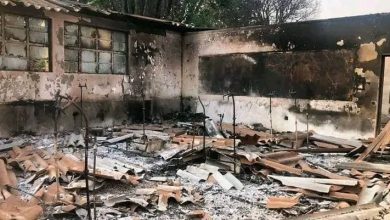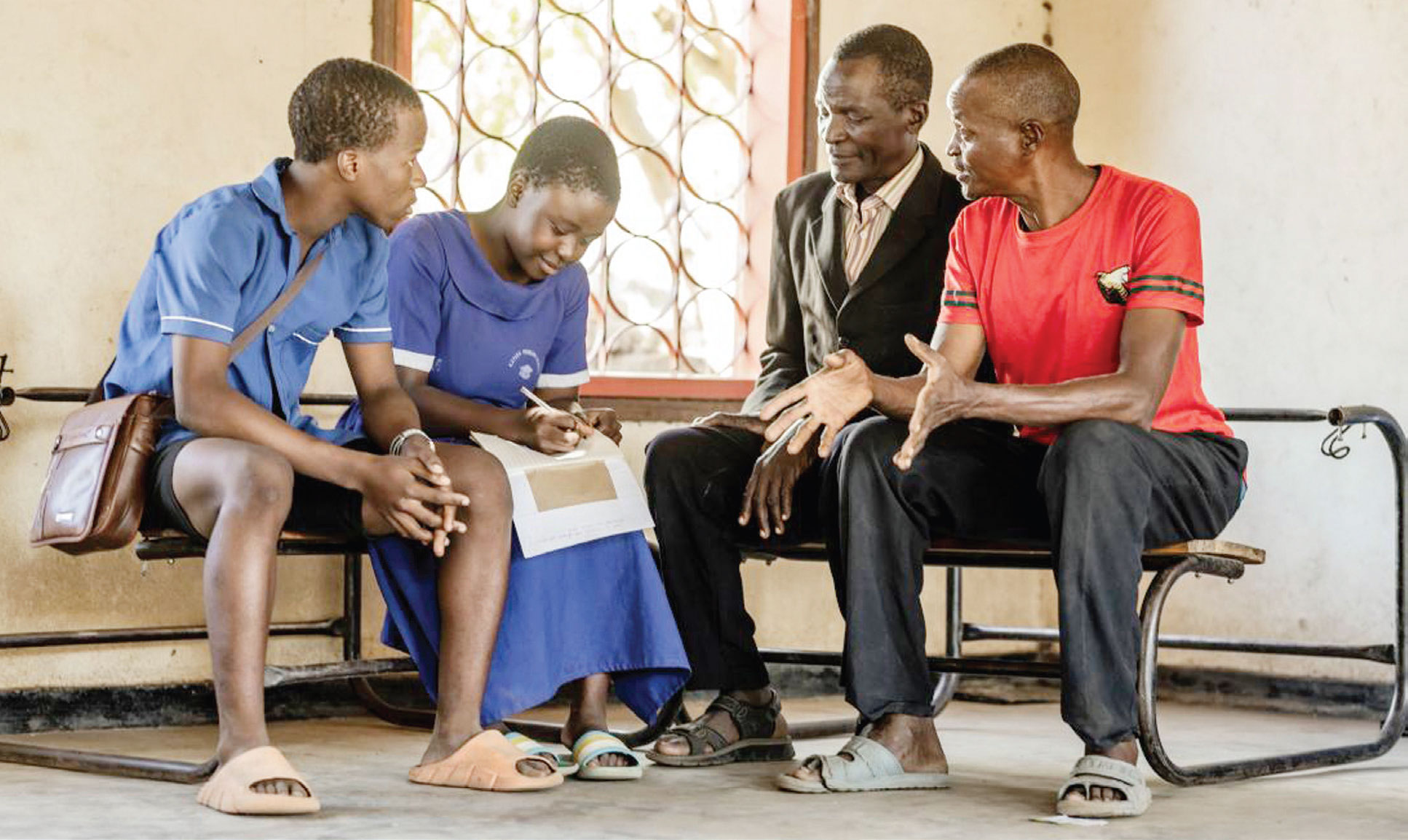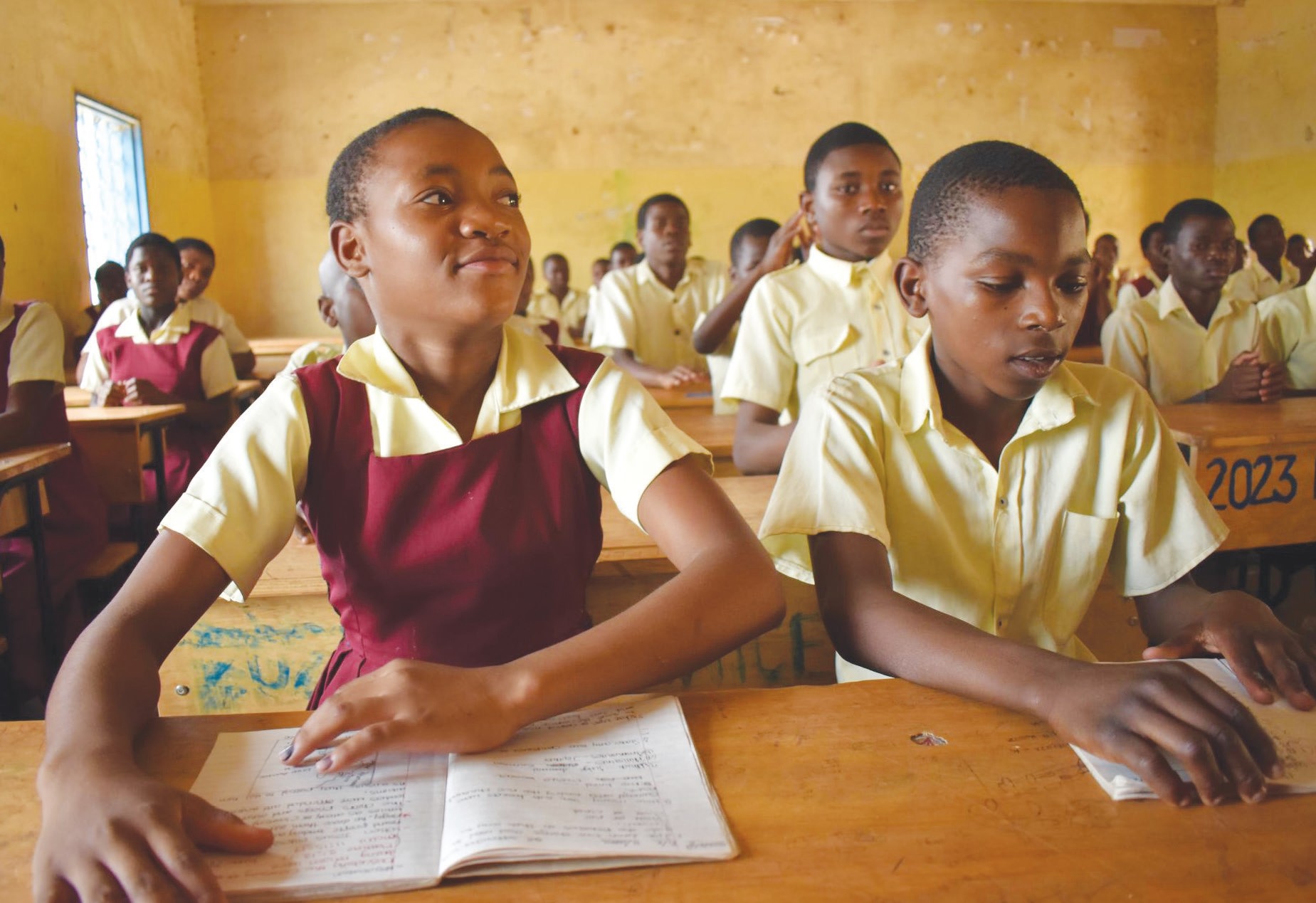Are parents doing enough in children’s education?
 With just one look, you could tell they were coming to school. Being a Thursday morning, their uniforms were dirty, but their faces dazzled with freshness—a sign that somebody at home had prepared them for school.
With just one look, you could tell they were coming to school. Being a Thursday morning, their uniforms were dirty, but their faces dazzled with freshness—a sign that somebody at home had prepared them for school.
Â
Yet that is not the story of Peterson Stone, 13, a Standard Four pupil at Chimbiya Primary School in the remote areas of Nchalo, Chikhwawa.
He is alone, carrying a tattered black plastic bag containing two notebooks and a pencil. He is not in school uniform either.
Tapping his bare feet on the dry and scorching ground of Chikhwawa, he trudges from a small busy path, drawn and hungry.
“I barely take food in the morning. I just wake up, collect my notebooks from where I left them after I knocked off the previous day and leave for school,†says the boy.
Peterson comes from a broken home. The sixth born in the family of eight, he lives with his mother, who survives on subsistence farming. Unfortunately, during the day of the interview, Peterson’s mother was not around. She had gone to attend to a sick brother at Chikhwawa Boma.
But Evaristo, 26, the firstborn in the family who lives in a small hut close to his mother’s house, says life is tough for the family.
“Our father does not live with us. He broke up with our mother some years ago. The going is quite tough for the family,†says Evaristo, who runs a bicycle taxi business, known as Shapa in the Lower Shire.
He is not married. Between him and Peterson, there are four sisters, two of whom are single mothers who live with their mother; one is married, while the other lives with a relative in Mzuzu.
None of Peterson’s siblings has gone beyond Standard Eight.
“Our mother struggles to meet our needs. I do not have school uniform and I do not have good clothing,†says Peterson.
Weighed by such a depressing background, Peterson still loves school and has a dream.
“I want to become a security guard. There is a security guard who lives close to our home. He inspires me so much,†he says.
After classes, Peterson says he plays football with his peers and sometimes catches mice. Although his dream of becoming a security guard is humble, for it to come true, he needs a good education. Sitting at the back of a congested class (163 pupils) under a grass-thatched open shed, the school is almost a nail on his coffin.
There is hardly a teacher’s house close by, or even that of a head teacher; they cycle, some walk, eight kilometres every day.
“Often, with the heat here, we arrive tired and sweating profusely. Rainy seasons are the worst. One cannot give their best as a teacher under such circumstances,†says Frank Katandika, head teacher at the school.
But life in school is tough for pupils as well. Learning in open air classes means the pupils are constantly distracted by what happens around them. Teaching and learning materials, too, are virtually absent at the school.
“Imagine, we only have five Chichewa books for a class of 163. How does a teacher go about that? Of course, we try to put them in groups, but to get close to everybody is difficult,†he says.
Even worse, if Peterson manages to sail through Standard Four, he can only go as far as Standard Six at the school as Chimbiya is not a full primary school.
“The nearest schools are all not less than 10 km away. With the roaring heat of Chikhwawa, few manage to withstand the walk to continue with school. Just like that, they drop out,†says Katandika.
Given his family background and the environment at school, does Peterson have any future in education?
The boy has two odds to fight. One, lack of adequate support at home, especially with his schoolwork, and two, the nature of the school he is learning.
But there is something positive about his school. Wretched as it looks, it has had its finer moments.
“As teachers, we are determined and devoted to give out the best within our capabilities. And we try hard,†Katandika says.
He says the challenge for pupils to excel in schools in his area is that although some of the children are bright, they lack motivation and encouragement from parents and guardians.
“Their parents rarely take a role in the education of their child. They don’t monitor the child’s progress. They do not even mind if the child really went to school or not,†says Katandika.
What Katandika argues is well manifested in the story of Peterson. He stays with his mother who is a subsistence farmer, yet he goes to school without a meal or a bath.
“We try to help him. For example, I buy him notebooks and pencils. We also encourage him to work hard,†says Evaristo.
But despite that, Peterson says he always makes independent decisions about his education.
“After knocking off from school, everything about school ends. I throw my books in the house and start doing other things. In fact, no one at home has ever asked me what we learn at school. No one ever monitors my progress,†says Peterson.
Dixie Maluwa-Banda, formerly Chancellor College associate professor of education, says family or home is quite crucial in the education of every child.
“The home is the first classroom for every child. Parents are the first teachers. A supportive family that provides their best love and care motivate the child.
“The family also helps in pointing the child to the right role model in their community. They advise a child who is the right person to admire and aspire to be,†he says.
Despite attending a rural school, Peterson’s prime challenge—just like any child across the country who shares his story—is the absence of family support and a parents’ hand in his education.
That is what makes Peterson the odd one out among his school mates.





